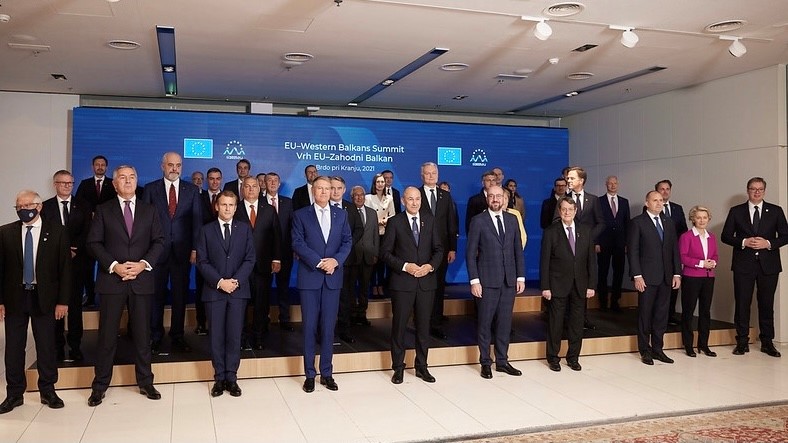Prime Minister Marin participates in EU-Western Balkans Summit in Slovenia

The Summit held on Wednesday 6 October focused on deepening cooperation between the EU and the Western Balkans. Topics discussed at the meeting included the EU membership perspective of the Western Balkans, deepening economic cooperation and managing the COVID-19 crisis.
The meeting affirmed the EU Member States’ commitment to the enlargement process, which is based on conditionality. However, actual enlargement was not on the agenda. The Western Balkans region is located in the middle of the EU Member States, and stability in the region is important for the EU and Finland. The reforms required to meet the EU accession criteria help to modernise societies and benefit citizens even before countries become Member States. Strengthening the membership perspective is particularly important in a situation where the influence of great powers in the Western Balkans is intensifying.
The meeting focused on deepening economic cooperation between the Western Balkans and the EU. In October 2020, the Commission published the Economic and Investment Plan for the Western Balkans and an Action Plan for implementing the Green Agenda for the region. These plans aim to boost the region’s competitiveness, advance its green and digital transitions, develop connections, establish a regional market, promote trade and support the region’s convergence with the EU. Key areas include the circular economy, waste management, improving air quality, developing transport links and reducing roaming charges between the EU and the Western Balkans.
The EU is the Western Balkans’ most important partner in responding to the COVID-19 crisis. The Western Balkans have received considerable economic support from the Union and have been able to use the EU Joint Procurement Agreement to purchase vaccines. The EU will continue to support the region’s ability to respond to crises in the future. The Western Balkans is one of the priority areas of the EU’s vaccination support. The pandemic situation in the region remains alarming and vaccination coverage is low.
In their declaration, the EU and the Western Balkans also reaffirmed their commitment to effective measures to prevent organised crime, terrorism and radicalisation, trafficking in human beings and money laundering.
In connection with the meeting, Prime Minister Marin had bilateral discussions with Croatian Prime Minister Andrej Plenković and Prime Minister of Kosovo Albin Kurti.
Inquiries: Lauri Voionmaa, Special Adviser (International Affairs), tel. +358 295 160 306 and Tuulia Pitkänen, Special Adviser (EU Affairs), tel. +358 295 160 231, Prime Minister’s Office